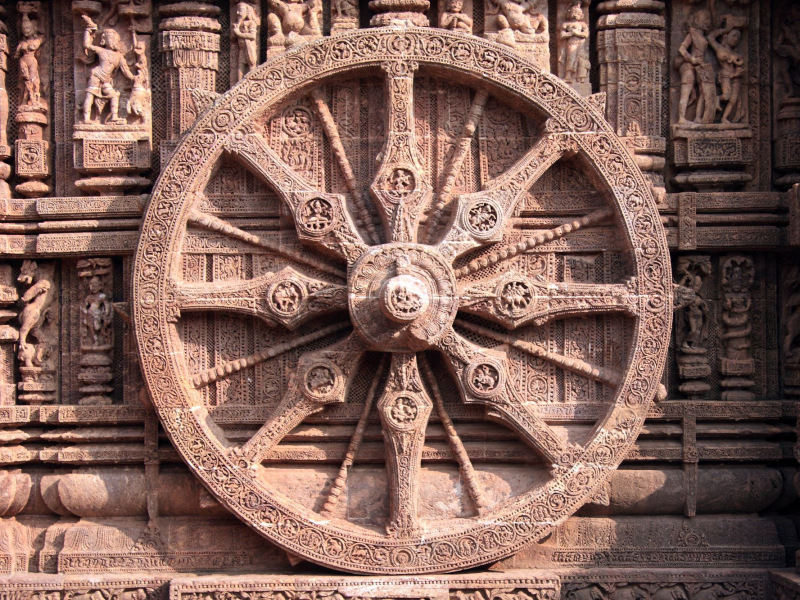Hinduism believes in a circular concept of time
Most people believe that everything has a beginning, middle, and end and are used to living their lives in accordance with linear beliefs and patterns of existence. Hinduism, however, has little to do with the linearity of history, the linear notion of time, or the linear course of human existence.
Cyclical Time: The passage of 'linear' time has brought us where we are today. Hinduism, however, has a distinct perspective on time, one that is more cosmic in nature. Hindus hold that creation occurs in cycles, with each cycle having four major epochs of time: the Satya Yuga, the Treta Yuga, the Dwapar Yuga, and the Kali Yuga. The act of creation also "begins to cease and ends to begin" since it is cyclical and unending.
Time is God: Time (called "kal" in Sanskrit) is seen by Hindus as a manifestation of God. God makes his energy active to start creation, and then he puts all of his energies into a condition of inactivity to finish it. God is eternal because time is a relative concept that vanishes in the Absolute. In him, the past, present, and future are all simultaneously present.
Kalachakra: The Time Cycle, or Kalachakra In order to divide the universe into movements of life and maintain it over a regular period of time, God establishes the cycle of time, known as the Kalachakra. Time is another tool God utilizes to create the "illusions" of life and death. The aging, passing away, and dying of his creations are caused by time. We become immortal when we beat the passage of time. Death is not the end of the line but rather the beginning of the next cycle, which is birth. This applies to the entire cosmos and is similar to the cyclical patterns found in the rhythms of nature.














